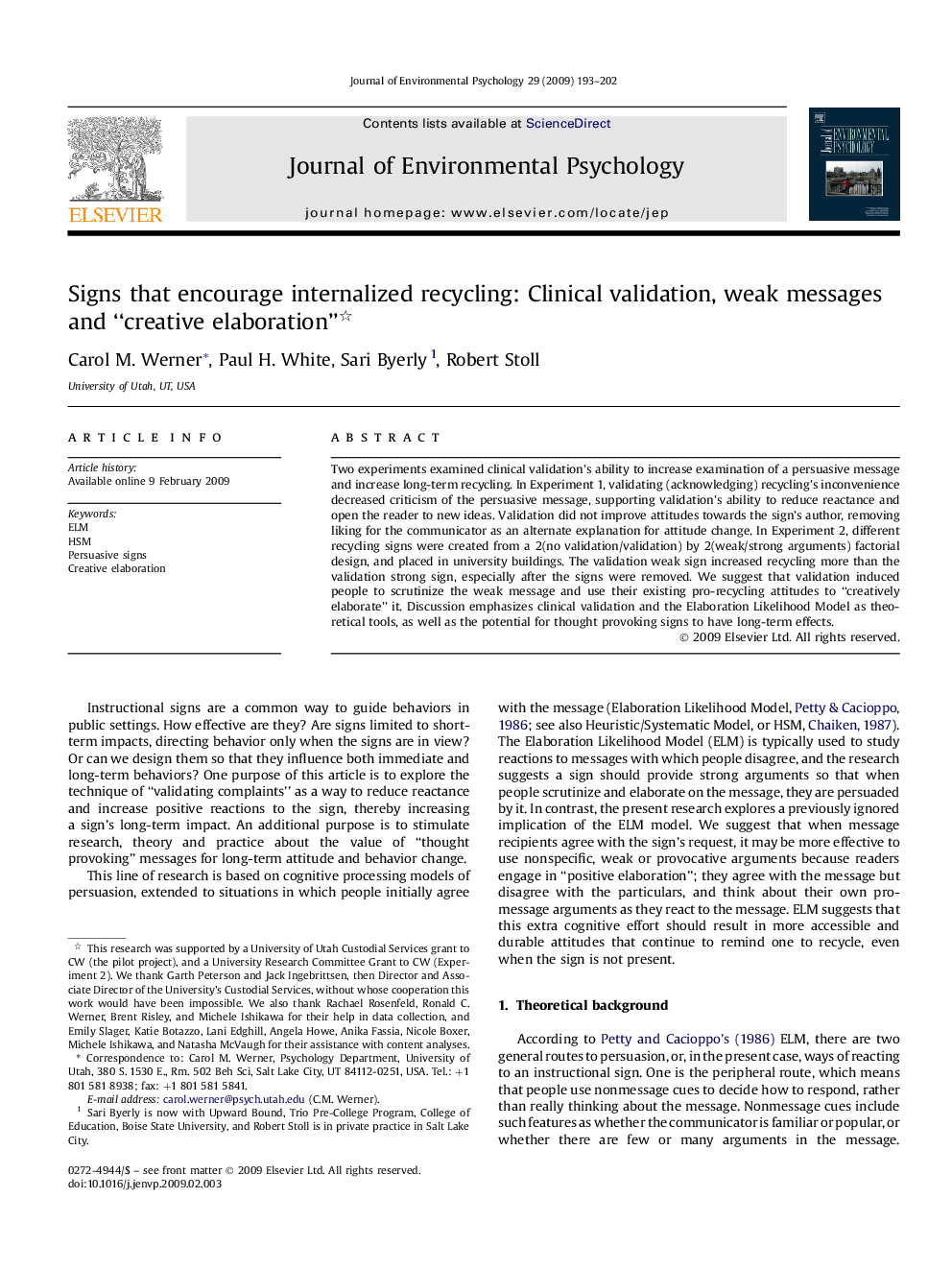| Article ID | Journal | Published Year | Pages | File Type |
|---|---|---|---|---|
| 885799 | Journal of Environmental Psychology | 2009 | 10 Pages |
Two experiments examined clinical validation's ability to increase examination of a persuasive message and increase long-term recycling. In Experiment 1, validating (acknowledging) recycling's inconvenience decreased criticism of the persuasive message, supporting validation's ability to reduce reactance and open the reader to new ideas. Validation did not improve attitudes towards the sign's author, removing liking for the communicator as an alternate explanation for attitude change. In Experiment 2, different recycling signs were created from a 2(no validation/validation) by 2(weak/strong arguments) factorial design, and placed in university buildings. The validation weak sign increased recycling more than the validation strong sign, especially after the signs were removed. We suggest that validation induced people to scrutinize the weak message and use their existing pro-recycling attitudes to “creatively elaborate” it. Discussion emphasizes clinical validation and the Elaboration Likelihood Model as theoretical tools, as well as the potential for thought provoking signs to have long-term effects.
